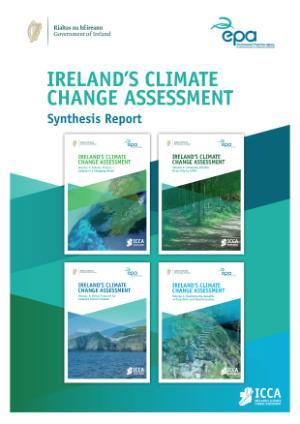The EPA's Monitoring and Assessment Role
The EPA monitors environmental pollutants and radiation to assess the impact on the environment and human health. Monitoring is undertaken across a broad range of thematic areas to provide a reliable and meaningful assessment of our environment. Information is made available to the public, stakeholders and policymakers to help them make informed decisions.
Check out what's happening, what's being done and the action you can take to improve the quality of your environment.
Browse by thematic areas
Bathing waters
How water quality is monitored and assessed at our designated bathing waters to keep swimmers safe and healthy.
Freshwater and Marine
The EPA Water Programme works with others to monitor and assess the health of our rivers, lakes, estuaries and coastal waters under the Water Framework Directive.
Latest News
FAQs on monitoring & assessment
A collection of frequently asked questions about monitoring and assessment to assist you with your queries.
popular FAQs about freshwater & marine
-
Where can I find information on bathing water quality at my local beach?
Before you visit the beach this summer with your family or friends, check out www.beaches.ie or our Twitter feed @EPABeaches
Before going to the beach you can check beaches.ie to see the latest bathing water quality (excellent, good, sufficient or poor) and find out if there are any current warnings or advice against swimming notices.
• At the beach or lake – lifeguards will fly the red flags when bathing waters are considered unsafe for bathing. You can check out the notice boards to see the latest water quality and if any warnings or advice against bathing notices have been posted by the local authorities.
• The 48-hour rule after heavy rain – swimming after heavy rainfall carries an added risk of pollution from surface runoff and is best avoided for 48 hours. Further information can be found on www.beaches.ie/protect-your-health-with-the-48-hour-rule/
• @EPABeaches – You can follow the @EPABeaches Twitter account and receive tweets of news and information on bathing waters and tweets of when bathing water incidents start and are over. -
Where can I find information on water quality for my local river or lake?
Catchments.ie shares science and stories about water quality in Ireland. This includes water quality data for all waterbodies in Ireland, the EPA Water Map and 46 catchment assessments.
You can also use the EPA's My Local Environment Map to show you what is near you by entering your Eircode.
-
I want to help look after my local river or lake. What should I do?
The Local Authority Waters Progamme has Community Water Officers all around the country who work with local people to build awareness, help build group capacity, support training and citizen science initiatives and strengthen links between public bodies, funders and communities who are looking after their rivers, lakes and other waters.
You can find contact details for your local Community Water Officer on the LA Waters Programme website.
-
To whom do I report pollution such as: fish kill; forest fire; oil spillage?
Pollution incidents should be reported in the first instance to the local authority in whose area the incident occurred as they can respond rapidly. The Local Authority will contact the Environmental Protection Agency if an EPA licensed activity is concerned.
If you know it is an EPA licensed activity you should contact the EPA directly as well as the Local Authority.
This link has the full details about how to Make an Environmental Complaint
Fish kills: To report fish kills, members of the public are encouraged to call Inland Fisheries Ireland’s confidential hotline number on 0818 34 74 24, which is open 24 hours a day.
Forest Fire: If you need to report a forest fire please dial 999 and ask for Fire Services. You will be put through to one of the national call centres who will record the necessary details.
-
Microplastics - do they have an impact on water quality?
Microplastics are a newly identified contaminant in water sources, including drinking water sources, across the world. Microplastics are very tiny (<5 mm) pieces of plastic which can come from a variety of different materials.
As microplastics are an emerging water quality issue, the impact of them on people’s health has not yet been fully assessed and determined. There is currently no water quality standard for microplastics in the Drinking Water Regulations. However, the EPA is keeping a close eye on European and Irish research in this area, and there may be a standard set in the future.




